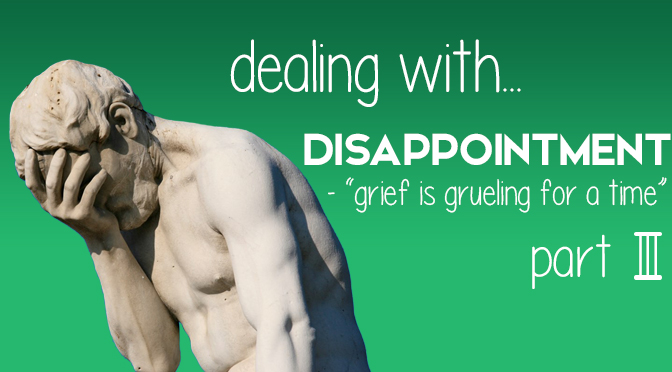In her deep anguish Hannah prayed to the Lord, weeping bitterly. 1 Samuel 1:10
According to the Merriam Webster Dictionary, grief is deep sorrow especially caused by someone’s death. It has physical, cognitive, behavioral, social, and philosophical dimensions. A fuller understanding of the word “grief” can be ascertained from reading the RSV version of the Bible, where “grief” is translated as “made life bitter” (Genesis 26:35); “indignant” (34:7); “in dread” (Exodus 1:12); “exceedingly bitter” (Ruth 1:13); “vexation” (1 Samuel 1:16 & Ecclesiastes 1:18); “bitter in soul” (30:6); “displeased” (Nehemiah 2:10); “very angry” (13:8); “offended” (Job 4:2); “embittered” (Psalm 73:21); “loathed” (95:10); “disgust” (119:158). Grief is indeed a deep and grueling response to loss. Understandably it takes time to work through it.
The most commonly accepted model of dealing with grief emotionally is the Kubler-Ross model. Her original five stages of grief has customarily been expanded to seven stages. Her definition of grief has expanded from the loss of a loved one to any personal loss – loss of a job or income, the end of a relationship or divorce, drug addiction or incarceration, the onset of a disease or chronic illness, an infertility diagnosis and even minor losses. The seven stages are shock and denial, pain and guilt, anger and bargaining, depression, reflection and loneliness, the upward turn, reconstruction and working through and acceptance and hope. There is no short cut to dealing with grief.
The first stage of grief is termed shock and denial because people’s first reaction to the loss is numbed disbelief. At some level, the loss is denied in an effort to avoid the pain. The shock enables people to protect themselves from being completely overwhelmed. Pain and guilt, the second stage, occurs when the shock wears off and unbelievable pain begins. It is almost unbearable, excruciating. People must go through this stage of suffering; they must experience it fully in order to heal. It is often accompanied by guilt over things left undone. The third stage, anger and bargaining, is perhaps one of the most dangerous steps. Lashing out and unwarranted blame for the loss occur. Bottled up emotions come out and can hurt current relationships. Questions such as “Why me?” become almost consuming. Trying to bargain to get the person back takes over. “God, if you just bring him back, I will serve you for the rest of my life.” Sadness then sets in, stage four, which is a normal stage of grief and must not be avoided. Many times well-meaning outsiders try to talk people out of this stage and should not. Encouragement is most helpful to get people through it. Then people have an upward turn, stage five, where they begin to figure out how to live without their loved one or what was lost. Life becomes calmer and symptoms lesson. Depression recedes. Then people begin reconstructing their lives, stage six. People begin to look for realistic solutions to problems posed by the loss. They begin working through things and rebuilding their lives. Finally, they reach stage seven, acceptance and hope. People begin to look forward and plan for the future. Although they may never be exactly the same as before the tragedy, they will begin hoping for the future again without the intense pain and heart wrenching sadness they felt for so long.
In my life so far I have faced two major losses. The first was the loss of my mother when I was 30 and pregnant with my oldest child, Melissa. Although I did not know there were seven stages of loss, as I look back I can identify each stage I passed through. Stage one came between the time my parents took my husband, Matt, and me out to dinner and said that my mom would be undergoing testing for digestive problems she had been dealing with for about a year. I asked if it was cancer. Although they didn’t know at the time, within a week or so the test results came back with the diagnosis of pancreatic cancer. My parents sought treatment anywhere they could find it, through both traditional and homeopathic medicine. For me this was stage one, numbness and disbelief. How could my mom, the healthiest of all her friends, the woman who had hiked Mt. Rainer, Mt. Kilimanjaro and the Himalayas all at age 55 plus have cancer?
Then stage two set in – pain and guilt. There was a deep sense of pain that my mom would never know my children, especially the one I was pregnant with at the time. A sense of guilt over the things I hadn’t told her, the things I had done wrong, the ways I had disappointed her began to occupy my mind. The thoughts were so prevalent that one day I made her a tape saying everything I had ever wanted to say but hadn’t and gave it to her. In stage three I don’t remember the anger as much as I do the bargaining. I cried out in prayer almost daily, ‘God, I am not asking for you to give my mother more years or even that she meets my daughter, I just ask that you save her.”
Then she died –only three months after her diagnosis – and sadness, stage four, set in. There was a deep sense of loss and yet it showed itself at the oddest times. It wasn’t at Thanksgiving or Christmas. I was prepared for the “big days”. It was the unexpected events that brought out the sadness, like the day I walked into Walmart to grab some Tide and Mother’s Day decorations were already up. As I passed through the front door, tears began to well up in my eyes, and I had to go back to my car. No Tide that day. Or the day I was driving to a conference where I had been invited to speak on English language acquisition to hundreds of educators in California’s Central Valley. Driving there I thought “My mom would have been so proud.” I wished I could have called her right then, and tears began to flow. Stage five and six blurred together for me as I began to figure out how to restructure my life without her – holidays were different, I began seeking advice and started sharing special things with my older sister instead of my mom, I invited my dad over more and called him more frequently. Then I finally reached stage seven, acceptance and hope. I accepted my mom was gone, and our family had a different structure. It may not have been what I had wanted or hoped for but it was ok. I had found new hope and new dreams. I had my own family to build. I could be the mom for my children that my mom was for me.
At 46 I faced my second great loss, when as missionaries in serving in Santiago, Chile we were called back to the U.S. When this lifelong dream of mine, being a missionary in a Spanish speaking country, was seemingly taken away it was almost unbearable. Had I more time and space I could describe the details but suffice it to say it took me two years to process the loss.
Grief is an unavoidable part of life. Everyone will lose someone they are close to, lose money, lose a job, and lose a hope or a dream. There is no way around loss. So perhaps the real question is how do you deal with loss and the incredible pain that accompanies it? In the Bible, Hannah is by far one of the best examples of this. She so badly wants a child but has been barren so long that according to 1 Samuel 1:10, In her deep anguish Hannah prayed to the Lord, weeping bitterly. 1 Samuel 1:12-13 says, As she kept on praying to the Lord, Eli observed her mouth. Hannah was praying in her heart, and her lips were moving but her voice was not heard. Hannah prayed so fervently, with so much heart and soul, that the priest thought she was drunk! 1 Samuel 1:12, Eli thought she was drunk and said to her, “How long are you going to stay drunk? Put away your wine.” Pouring out your heart first to God, then to spiritual friends is the answer. Telling God how you feel, working through your feelings with Him and letting him heal your heart during each stage of the grief process is the key.
In Philippians 4:6-8 God says, Do not be anxious about anything, but in every situation, by prayer and petition, with thanksgiving, present your requests to God. And the peace of God, which transcends all understanding, will guard your hearts and your minds in Christ Jesus. Finally, brothers and sisters, whatever is true, whatever is noble, whatever is right, whatever is pure, whatever is lovely, whatever is admirable—if anything is excellent or praiseworthy—think about such things. At each stage of your grief pour out your heart to God. At each stage, God will give you a peace that transcends all understanding if you truly pour out your heart to Him. Although anguish and bitterness seemed to crush her, through prayer Hannah went on to become the mother of the great leader Samuel! After grief and disappointment, what a victory!
Helen Sullivan


1 comment so far